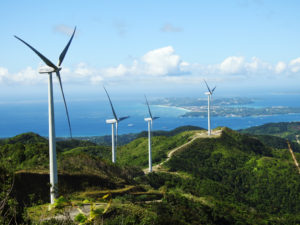MANILA, Philippines — A trade association of garment exporters is urging the government to facilitate the construction of new textile factories in the country, in anticipation of an increase in the demand for these goods once the Philippines enter into a free trade agreement (FTA) with the European Union (EU).
Robert Young, president of the Foreign Buyers Association of the Philippines (FOBAP), said last week they have been requesting the government to build a pilot commercial-scale wearable textile factory.
“Just one will be enough, we have to quickly start something so that these foreign investors will follow suit,” Young said in a statement.
“Garments, once it’s there, can be a lifesaver to any economy just like in Bangladesh and Vietnam, India, Laos, (and) Cambodia,” added Young, who is also the trustee for the textile, yarn and fabric sector at the Philippine Exporters Confederation Inc. (Philexport)
READ: Textile industry faces hurdles as rivals automate
Young, who is the head of the group which exports around $1 billion worth of garments and apparels overseas, also said that Philippine garment exports are currently subjected to a 12-percent tariff or even more.
Expected rise in PH garments
He said that this is due to the strict rules of origin, which imposes a ceiling for value-added inputs sourced from a country which is not a beneficiary under the EU’s Generalized Scheme of Preferences (GSP) scheme.
“They (EU) prefer that the fabric we will be using will be sourced from the Philippines. So, this is one way of saying the Philippines has to produce its own fabric,” he said.
READ: Garment exporters await better 2024
Further, the FOBAP official said that building a pilot factory in the Philippines so the country can produce its own fabric or textile is necessary given expectations that the revival of negotiations for an FTA with the EU will also prescribe the same requirements.
He said that with EU’s enforcement of these strict rules, industry players are expected to hit just 80 percent of their target garment and apparel exports of at least $1 billion this year.
Aside from the suggestion of building a pilot commercial-scale wearable textile factory, Young said that they have also asked the government to make a formal request to the EU to allow the Philippines to use imported materials while qualifying for zero duties while the facility is being built.


